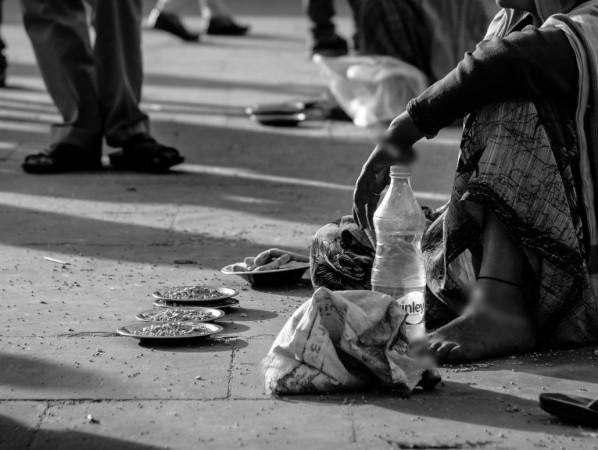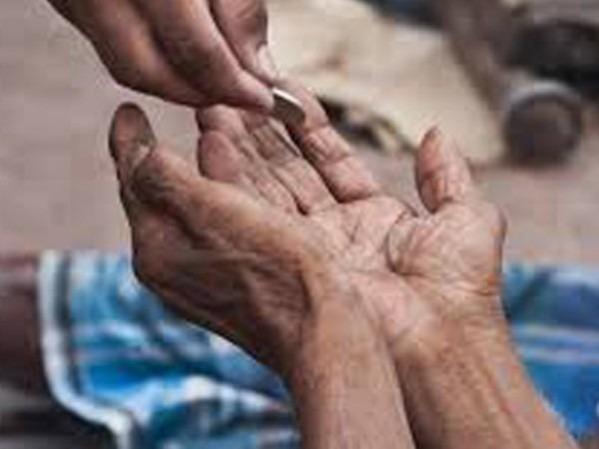He was abducted by the begging mafia six months ago. The gang gave him an injection that made him blind. They cut the fingers of his hand and foot and assaulted him to give injury marks - all this to make him a suitable beggar.
As his condition worsened and he could not even beg, the gang conveniently dumped him near a slum settlement where he lay unconscious for quite some time till the police rescued him and took him to hospital.
Suresh Manjhi, 24, a daily wage labourer weeps bitterly as he recounts his tale of woe. "I was subjected to heinous crimes. They intoxicated me and then injected a chemical in the eye to make me blind. They cut off the fingers of my hand and foot," he said.

Manjhi, a daily wager from the Yashoda Nagar slum cluster, is still in a state of trauma.
"The gang sold me off to a woman for Rs 70,000. Later, I was taken to Delhi in the Gorakhdham Express by a man named Raj. When in Delhi, I was dropped at a point to beg. They would give me and other beggars just two chapatis a day to ensure that we stay skinny and invoke pity. They would torture me every day and inject something in my body," Manjhi told the police.
Then he developed an infection and was unable to even beg for money. His buyers now wanted Manjhi's replacement.
"I was sent back to Kanpur in a train. The gang tried to sell me once again but after a few failed attempts, they dumped me on the road, where I lay unconscious for a few days. Finally, police took me to a hospital and reached out to my family," added Manjhi.
B.P. Jogdand, commissioner of police, Kanpur, told reporters, "Manjhi has been through a lot. We are making all efforts to bust this notorious gang. A case has been registered against unidentified accused under relevant IPC sections."

DCP Kanpur South Pramod Kumar said, "Manjhi has given us the names of the accused. Police are trying to establish their identity and their addresses."
Meanwhile, as per police data, 179 children went missing this year (till October) alone.
"Of these, 46 children who had run away from their homes over issues with their parents, have returned. The police were able to trace 111 others. However, 22 others are still to be found," said Suraj Chauhan, in-charge of the Special Juvenile Police Unit (SJPU).
The SJPU was established in all districts in 2012 to investigate the cases of missing children (below 18 years).
The police data further reveals that in the last seven years, 43 boys and 59 girls below the age of 16 years -- who went missing from different parts of the state under mysterious circumstances -- have still not been traced. Some of these cases may be involved in a human trafficking racket, as per officials.
(With inputs from IANS)









!['Had denied Housefull franchise as they wanted me to wear a bikini': Tia Bajpai on turning down bold scripts [Exclusive]](https://data1.ibtimes.co.in/en/full/806605/had-denied-housefull-franchise-they-wanted-me-wear-bikini-tia-bajpai-turning-down-bold.png?w=220&h=138)



